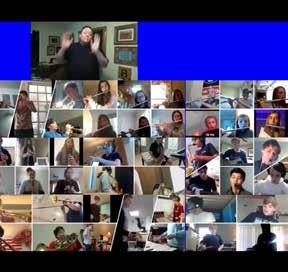T he Artistry of Building
Cultural Competence b y DR . TI F FA N Y R U SS E L L D IR E C TO R O F DI V E R S I TY & I N C LU S I O N
Imagine a blank canvas. Picture an artist standing in front of the canvas with tools, various colors of paints on a palette, and paintbrushes. Where do they begin? With a vision for the future, an experience from the past, or a story that builds connection between the artist and viewer? The act of an artist creating a masterpiece is similar to an individual’s journey toward building cultural competence; it requires vision, reflection, creativity, practice, and lifelong exploration.
Defining
DEFINING CULTURAL COMPETENCE
Cultural competence, loosely defined, is a person’s ability to understand, appreciate, and interact with people from cultures or belief systems different from their own. Cultural competence is as much about our relationships with other people as it is about understanding our own cultural background and heritage. Like other types of competence, cultural competence is developed over time through training, experience, guidance, and selfevaluation. The most recent acts of violence and subsequent demonstrations for racial justice have quickened the self-evaluation process on a myriad of levels: individual, communal, and institutional. We are faced with an opportunity to build our competence. We can listen to the stories of the people and communities impacted by racial profiling, discriminatory treatment, and violence and then act in meaningful ways on behalf of them. Or we can do nothing. And, doing nothing is not a choice for us at St. Martin’s. At St. Martin’s we encourage this journey of exploration and reflection. How can we not? As educators and artists, it is our duty to help our students to develop a sense of the world that is expansive, one that should be equitable for all. Most importantly,
20 SUMMER 2020 | ST. MARTIN’S EPISCOPAL SCHOOL
we must encourage our students to ask why this is? Asking this question alone is the beginning of building cultural competency. To understand cultural competence, it is important to first grasp the full meaning of the word ‘culture.’ Merriam-Webster defines culture as the values, norms, and traditions that affect how we think, act and make judgments about our world. Culture is the fundamental building block of our identities. Culture also includes the customs, arts, social institutions, and achievements of a particular nation, people, or other social group. In other words, culture is represented in our homes, our places of worship, and our schools and many other places. Relationship building is fundamental to cultural competence and is based on the foundations of understanding each other’s expectations and attitudes, and subsequently building on the strength of each other’s knowledge. It requires trust and vulnerability, so if we mess up along the way, we are forgiven and can learn from the experience. Our environment determines what we learn, how we learn it, and the rules for living with others. These rules are transmitted from one generation to the next and when we add competence it signifies the ability to understand







